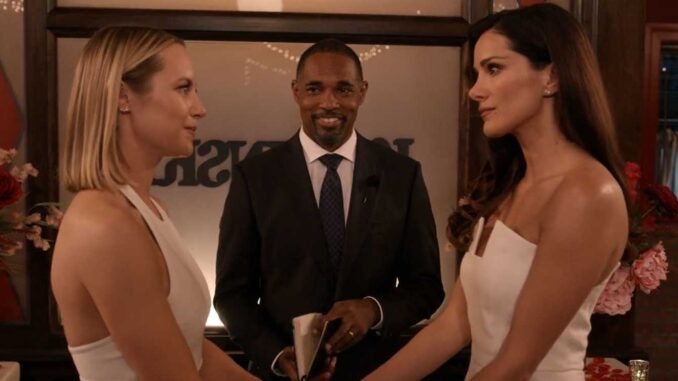
The Phantom Life Raft: When Netflix Nearly Saved Station 19 and Fans Relived the Ache of Goodbye
The television landscape is a perpetually shifting terrain, a digital frontier where stories are born, flourish, and often, with heartbreaking swiftness, vanish. For the cast and ardent fanbase of Station 19, the cancellation by ABC was a blow, a familiar and painful chapter in the annals of beloved shows cut short. But recently, a new detail emerged, casting a bittersweet shadow over the series' ultimate demise: the revelation by its stars that Netflix had nearly swooped in, a digital phoenix, ready to give the firefighter drama a second life. This tantalizing "what if" has not only offered a glimpse into the labyrinthine world of network and streaming deals but has also, perhaps cruelly, forced fans to relive the acute sting of cancellation, magnifying the pain with the phantom limb of hope.
For the actors, the initial news of Station 19's impending end must have felt like a sudden, gut-wrenching fall. After years of inhabiting their characters, building on-screen chemistry, and forging off-screen friendships, the prospect of an abrupt finale marks not just the end of a job, but the dissolution of a family. When the whispers of Netflix’s interest began, it must have been an adrenaline shot straight to the heart of that despair. Imagine the conversations, the cautious optimism, the internal recalculations of futures that had suddenly seemed mapped out. It wasn’t merely a potential new contract; it was the promise of more stories to tell, more arcs to explore, more moments with the characters they knew so intimately. For a fleeting, hopeful moment, a lifeline was thrown, an alternate path cleared in the smoke-filled uncertainty of their professional lives. This wasn't just "nearly saved"; it was a brief, vibrant flash of a future that could have been, a vision of their firehouse family continuing its vital work under a new, powerful banner.
But the nature of television, particularly in this fragmented, multi-platform era, is as much about cold, hard business as it is about compelling narratives. The "nearly saved" swiftly morphed into "almost, but not quite." The precise reasons for the deal's collapse are often obscured by corporate veils – rights issues, licensing costs, platform exclusivity, the nebulous calculus of subscriber acquisition versus production spend. Whatever the ultimate hurdle, that door, which had briefly creaked open, slammed shut, leaving behind the chilling echo of what could have been. For the stars, this must have been a unique kind of disappointment, perhaps even more acute than the initial cancellation. To have tasted a second chance, to have seen the flicker of renewed purpose, only for it to be extinguished by unseen forces, adds a layer of quiet resignation to their goodbye. They weren't just mourning the end of the show; they were mourning the loss of a rescue.
For the fans, however, the revelation has been an altogether more public and agonizing experience. When a show is cancelled, the grief is immediate and raw. There are petitions, social media campaigns, outpourings of love and lament. Over time, that initial acute pain mellows into a nostalgic ache, a fond remembrance of a story that once burned bright. But the news of Netflix’s near intervention has re-opened that wound, not as a fresh cut, but as a deeper, more profound bruise. It’s no longer just "my show was cancelled"; it’s "my show was almost saved." This particular shade of disappointment is far more insidious. It forces a painful re-evaluation, a reliving of the original hurt, now laced with the bitter tang of a missed opportunity.
The internet, a digital bonfire of shared emotion, immediately lit up with this renewed pain. Fans took to social media, not just to express sadness, but to articulate a specific brand of frustration: "We were this close!" The comments sections became virtual support groups, as people grappled with the knowledge that their collective passion, their unwavering support, had almost, almost, swayed the fates. The "md02" of the original announcement, a seemingly innocuous code, now seems to signify not just the source of the news, but the moment a community felt the second-hand reverberations of a lost fight. It’s a pain born of imagining a future that was snatched away, a narrative continuation that existed only as a whisper on the wind.
The story of Station 19's near-rescue by Netflix is more than just a footnote in television history. It is an illustrative tale of the contemporary media landscape: one where creative endeavors constantly balance on the precipice of commercial viability, where streaming giants hold immense power as both saviors and silent arbiters, and where the bond between a story and its audience is both deeply personal and globally communal. It underscores the emotional investment of actors in their craft and, perhaps most profoundly, the enduring, often heartbreaking, investment of fans in the worlds and characters they come to cherish. For the stars, it's a poignant reminder of a road not taken; for the fans, it's the cruel twist of fate that transformed a simple ending into a lingering, "what if" ache, making the goodbye to Station 19 not just final, but hauntingly, enduringly bittersweet.